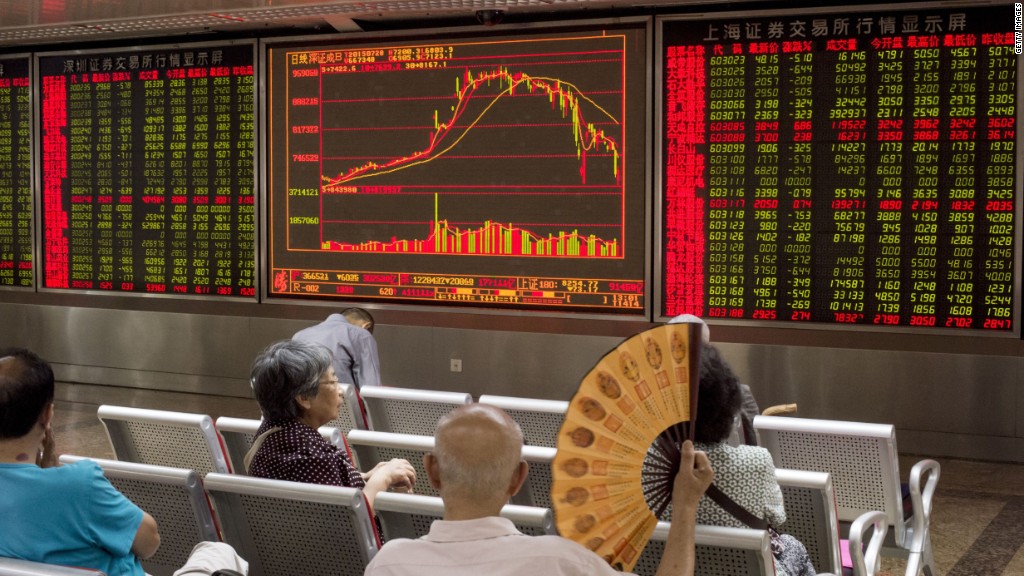
Chinese brokerages have stopped executing short sales after officials tightened trading rules in a new attempt to shore up the country's stock market.
Short sellers borrow and then sell shares, betting they can buy them back later at a cheaper price -- and pocket the difference. Only approved brokers are allowed to engage in short selling in China.
Citic Securities, the country's largest broker, said Tuesday that short selling had been halted so its system can "adjust" to new regulations that require investors who borrowed shares to wait one day to repay the loans. Previously, the shares could be repaid on the same day.
Officials hope the measure will force investors to think twice about betting that markets will fall.
Other brokers, including Huatai Securities, Guosen Securities, Great Wall Securities and Qilu Securities, also suspended short sales. Resumption of service will "be announced in due course," they said.
The new regulations were issued after the market close on Monday by the Shenzhen and Shanghai stock exchanges.
Markets appeared to receive a boost as a result. The Shanghai Composite gained 3.7% on Tuesday, while the smaller Shenzhen Composite added nearly 5%.
China is trying to save its market with failed policies
Beijing has accused "illegal short sellers" of fueling China's recent stock slide, which at one point wiped more than $3 trillion in value from the country's markets. Police have vowed to investigate and arrest any "malicious" sellers.
The focus on short sellers is at odds with the fact that it's difficult to short stocks in Shanghai - and all but impossible for foreigners.
China's stock markets are dominated by local retail investors who have little use for the trades.
Yet in targeting short sellers, Beijing is following a tested model. During the 2008 financial crisis in the U.S., the Securities and Exchange Commission temporarily prevented investors from betting on stock declines. Greece just extended a ban on short selling until the end of August.
Many market participants -- especially hedge funds -- viewed the decision as government overreach.


